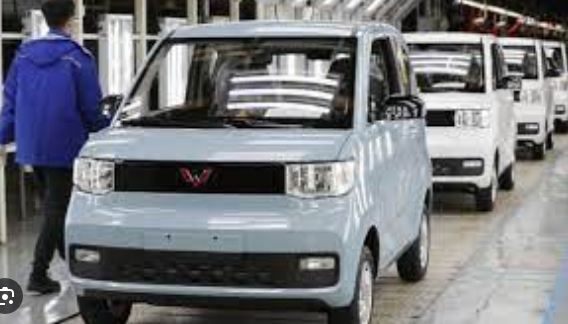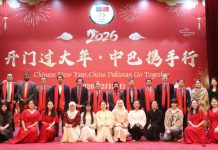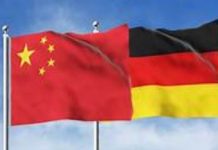SHANGHAI, July 28, (DNA): “Over the past two decades, China has successfully established a complete and efficient supply chain for Electric Vehicles, with strengths in technology, design & development, and manufacturing.
According to Dr. Li Xiangping, Former Director of Dongfeng Motor Co., Ltd. and Doctor of Mechanical Engineering at the Polytechnic University of Turin, China’s experience suggests EVs can be an opportunity for developing countries to leapfrog developed countries.
During the China Pakistan Electric Vehicle Industry Technology Service Cooperation Forum held earlier this month, Dr. Li noted that the most growth potential will likely come from ’emerging Asia,’ including Pakistan, which has a large population, Gwadar Pro reported on Friday.
The region will continue to need more EVs for its energy transition even after China’s domestic market becomes saturated.
China’s dominance in the global electric vehicle (EV) market has positioned the country as a key player in the industry. China has been the world’s No. 1 auto market for more than a decade. In 2022, worldwide auto sales were 80.18 million units, with China selling 23.24 million (27.48 million including CV) units, accounting for a 33% market share. It was followed by the United States with 13.73 million and Europe with 11.29 million.
What has shocked the world is China’s rapid progress in mobility electrification. Last year, worldwide EV production was 10.31 million, with China producing 6.5 million PV (plus 0.3 million CV EV), representing 63% of worldwide EV sales.
China’s EV penetration rate was 28%. Among the top 10 EV brands, 8 are local Chinese brands, and two are from other countries, namely Tesla and Volkswagen. China’s EV market is roughly four times the size of Europe and eight times the size of the United States.
According to Dr. Li, China’s leadership in the electric vehicle industry can be attributed to the forward-looking long-term planning and consistent support policies of the Chinese government, huge investment and resources, and a fully developed and efficient supply chain or ecosystem from which Pakistan can benefit.
Pakistan can learn from China’s experience and implement similar policies to spur the growth of its own EV market.
Leveraging its systematic advantages and expertise in electric vehicle production, China can deliver tremendous growth potential to Pakistan’s emerging electric vehicle industry. Recognizing the potential benefits, Pakistan has been actively pursuing collaborations with China to enhance its EV sector.
The China-Pakistan Economic Corridor (CPEC) has played a crucial role in facilitating these partnerships, with a growing number of Chinese companies, including Huazi and MG, investing in Pakistan’s EV infrastructure and manufacturing capabilities.
Mr. Saqib H. Shirazi, Chairman of the Pakistan Automotive Manufacturers Association (PAMA), underlined that the collaboration between China and Pakistan in the auto sector has already started yielding positive results.
Chinese companies such as BAIC, Changan, JAC Motors, and Chery Automobile have established partnerships and joint ventures in Pakistan, contributing to the growth of the local auto industry. Further cooperation will empower the electric vehicle industry in Pakistan.
The fiscal budget for 2023–2024, released in June, brought good news for EVs in Pakistan. The customs tax on imported fully assembled hybrid electric vehicles (HEVs) has been reduced to 1%, according to the budget papers.
Additionally, the tax for importing plug-in hybrid electric vehicle (PHEV) components in knocked-down units is now 3%, and the tax for importing HEV components in knocked-down units is now 4%. It is also worth mentioning that the customs tax on lithium-ion batteries is 0%.
By leveraging China’s expertise in battery technology, supply chain management, and government support, Pakistan can accelerate the development of its own EV market.
The collaboration between the two countries in the EV sector is expected to drive economic growth, create jobs, and contribute to a cleaner and more sustainable transportation system in Pakistan.”












